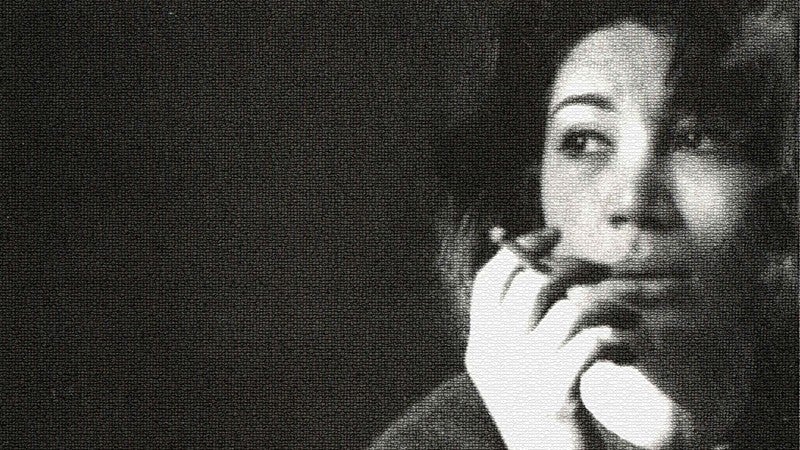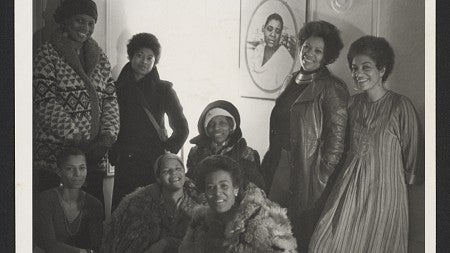
Finding “Her” in Feminist Poetry
Translating the works of Forugh Farrokhzad and other female poets leads to a unique career path
By Matt Cooper • October 2, 2019
5 min read
The late Forugh Farrokhzad is one of Iran’s most important poets. She wrote from a female point of view in the 1950s and ’60s, about strong, rebellious, unapologetic women. She was ostracized for it, and her own fierce independence ended with repudiation by her father and family.
Undaunted, Farrokhzad went on to reshape the poetry field as the country’s first modern feminist poet, inspiring countless admirers. Among them is Elmira Louie, who graduated in June with degrees in comparative literature and English; indeed, it’s fair to say Farrokhzad’s work—and that by other international feminist poets of her era—has instilled in Louie a direction for her life.
As a Robert Donald Clark Honors College student, Louie was required to complete a research thesis. Iranian-born and fluent in Farsi and Spanish, she examined the work of Farrokhzad, Spaniard Rosalía de Castro, and Turk Gülten Akin.
She chose to explore the trio’s poetry through a lens with which she had no prior experience: feminist translation theory. This method for translating literature relies on the use of specific language to emphasize ideas of gender and the female within the text. Louie immersed herself in the study of this approach, gradually gaining the expertise to make fascinating contributions to existing translations.
For example, in translating Farrokhzad’s 1964 poem “Forgive” into English, Louie created an intriguing alternative to a popular translation in the literature.
In the popular translation, the female gender is assigned to the subject from the outset, with the use of pronouns such as “she” and “her.”
But Farsi is without gendered pronouns. Honoring that in her translation, Louie withheld identification of the gender until it becomes obvious deep in the poem. The effect is to create ambiguity about the subject’s gender until that point, enabling readers to draw their own conclusions, which Louie believed important based on the late poet’s word choices in the poem.
For example, a comparison of the two translations of the opening line:
- Forgive her. Sometimes she forgets, “from a popular translation in the academic literature”
- Forgive the one who sometimes forgets, “Louie’s version”
Louie is no stranger to demanding academic projects. She’s a McNair and Stamps scholar—the former program supports underrepresented students for doctoral studies and the latter is a merit-based award that is the university’s most prestigious and generous undergraduate scholarship.
Nevertheless, this undertaking stretched her. It was the culmination of a two-year effort in which Louie pored over the poets’ works and identified a thesis only after countless discussions with faculty members in comparative literature, English, and Romance languages. She ratcheted up the complexity of the project, too, by examining three authors of different languages and endeavoring not just to add new translations to the literature but to create a new way of thinking about gender in Persian, Spanish, and Turkish literary and cultural contexts.
“It was like five theses in one,” Louie says, laughing. “Translation is both an extremely fun and an excruciatingly frustrating process. But the hours spent agonizing over a single word are well worth the feeling of satisfaction that comes when you finally get that perfect translation.”
Louie’s immersion into feminist translation theory so energized her that she has embarked on a doctoral program at the University of California at Davis, with plans of becoming a professor of that literary technique and others like it.
“I’d never heard of feminist translation theory but the more I started reading about it, the more interested I got,” Louie says. “It felt like I was discovering something. This whole new world just opens up for you.”
Matt Cooper is managing editor for Oregon Quarterly.




